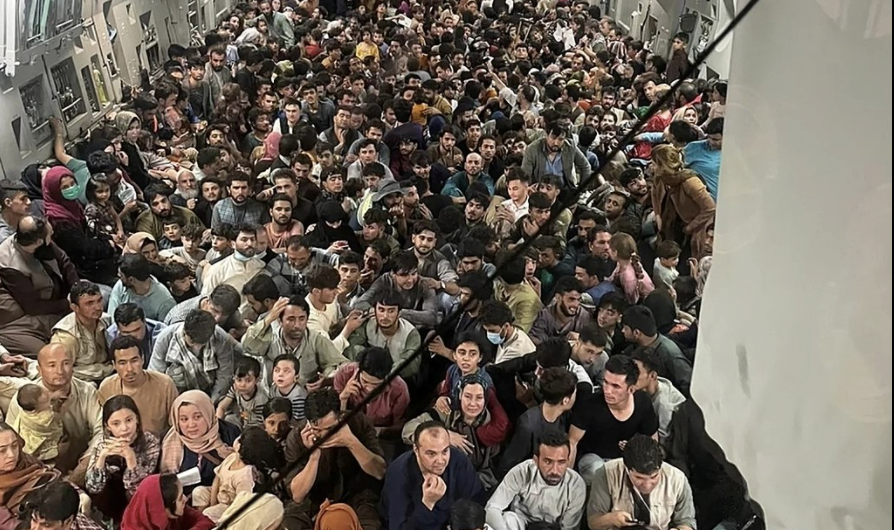Words By Prerana Sengupta
On August 15 Taliban fighters took control of the Afghanistan capital Kabul, after sweeping to power across much of the country in a week-long offensive.
The American mediation in Afghanistan following the 9/11 attacks on the Twin Towers is one of the most frequently discussed events in the field of global politics and humanitarian rights. The Afghanistan crisis has caught the attention of international media due to the hurried withdrawal of US Troops and the rapid take-over of several major cities of Afghanistan including Kabul- the capital city, by the Taliban.
The militants have been trying to project a more moderate image, promising to respect women’s rights and reassuring Afghans and foreigners that their lives are not in danger.
Despite multiple promises made by the Taliban to not use offensive measures and pay heed to human rights- the administration has been seen to be in violation of this time and again. Many fear they will reimpose the brutal pre-2001 regime with reprisal killings and the enslavement of women.
Afghanistan is in chaos and the Hamid Karzai International Airport has seen the most of it. Images being circulated online have seen deaths and the desperate attempts by Afghans to escape the country.
This current situation cannot be assessed without taking a look at the history and what led to this situation.
Afghanistan is a country in South Asia that shares borders with Pakistan, Iran, Turkmenistan, Uzbekistan, Tajikistan, and China. The country’s name has come up numerous times in discussions about the mushrooming of terrorist organisations over the years.
The two-decade-long war started when U.S. President George W. Bush launched an invasion of Afghanistan on October 7, 2001, a retaliation for the 9/11 attacks. The next few years would see the U.S. along with the Northern Alliance, chasing Al-Qaeda out of the country and upending the Taliban regime and Osama bin Laden fled to Pakistan. The period that followed was deceptively peaceful. The U.S. military deaths went down drastically and only a light footprint of the U.S. military was maintained in the country. The aim of this U.S. military regime was to defeat the Al-Qaeda and Taliban and help set up a democratic government that would prevent any further terrorist activities. Since then the country has seen many such periods of unrest and uncertainty under several U.S. administrations. Al-Qaeda, however, fell following the death of Laden in 2011 as part of a U.S. special operation. Obama’s plan to withdraw troops was being carried out when another surge hit the country. For the first time, the Taliban fighters gained control of a provincial capital- Kunduz, after defeating the Afghan soldiers and police. The bloodshed and the gradual weakening of the Ashraf Ghani government led to President Obama suspending the drawdown.
Afghanistan, under the Trump administration, saw an increase in U.S. military troops. However, the Trump administration was constantly looking for an exit and therefore started negotiating with the Taliban in 2018. On February 29, 2020, the American and Taliban diplomats signed a peace agreement- the U.S. agreed to the withdrawal of forces and the Taliban to stop attacks on Americans. The talks held between the Taliban and the Afghan government saw no progress and in April 2021 U.S. President Joe Biden announced the withdrawal of forces from the country. Applauded as he was for taking a step in the right direction, unlike his predecessors (in whose case the withdrawal was prevented by happenstance and obligations)- he is being criticised for the hurried execution of the plan. In May 2021 the U.S. military accelerated the pace of withdrawal completing almost 95% of the withdrawal. Simultaneously, the Taliban continued its offensive thus ultimately resulting in the capture of Kabul on August 15, 2021, preceded by the capture of cities like Kandahar and Herat, the fleeing of the Afghan President Ashraf Ghani, and the collapsing of the government. The reason for this collapse, however, remains uncertain and is still up for debate.
Parliament in the UK will recall from its summer break to discuss the Afghanistan crisis in the coming weeks. Prime Minister Boris Johnson said “nobody wants Afghanistan once again to be a breeding ground for terror”, at an emergency Cobra meeting. An emergency NATO evacuation troop consisting of 6000 US marines and 600 British paratroopers is carrying out an evacuation operation helping their country nationals evacuate over the weekend.
Editor’s Note; Events are correct as of the time of writing, 02/09/2021





